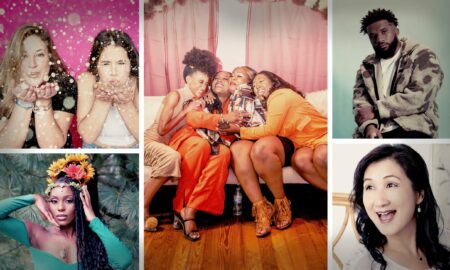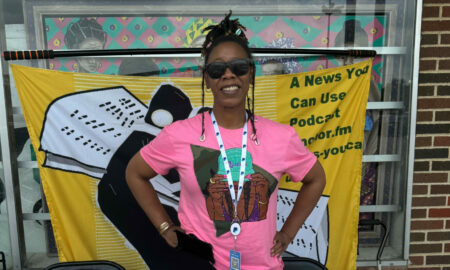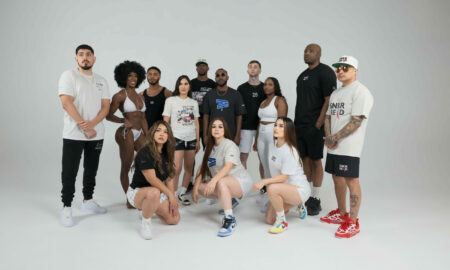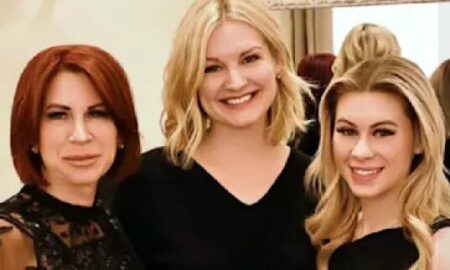
Today we’d like to introduce you to Elvina Almeida.
Hi Elvina, can you start by introducing yourself? We’d love to learn more about how you got to where you are today?
My name is Elvina Almeida, founder and executive director of Palette Hope, a 501(c)(3) non-profit organization that focuses on improving the status of mental health in colleges through the use of art. Palette Hope was founded in the fall of 2018 at the University of Texas at Dallas (UTD) with the help and support of our current co-founder and Operations Director, Stephanie Cao.
Since our founding, we have been able to provide a variety of art events that serve as a creative outlet and stress relief for college students. Several campuses around the nation are STEM-oriented schools making it is easy for students to get swept up in the academics and rigor of college life. With these responsibilities coming into the forefront of everyday life for many students, balancing school and social life becomes difficult to handle. Mental health issues are prominent among college students. Nearly 39% of students suffer from mental health illnesses. In fact, suicide is the second leading cause of death among young adults. The repercussions of the Covid-19 pandemic on college students has only increased these numbers. Although art is not the permanent solution for mental health challenges, it is capable of promoting self-expression, sensory engagement, and creativity.
Art encourages healthy coping strategies that deepen and transcend traditional counseling. Art is also a positive outreach tool that brings levity to the issues within our generation. Palette hope strives to raise awareness about the causes we support through AVID: art healing sessions, volunteer opportunities, interactive art displays, and donation bins for art supplies. Art healing sessions are free and accessible art events on campus where students can destress, heal, and open a conversation about mental health. Some sessions include mental health speakers who provide professional input on specific mental health topics. Interactive art displays are art displays that are interactive and encompass pressing mental health topics. Our annual art display is known as St(ART) Smart.
St(ART) Smart is an event that raises awareness about the number of individuals on campus affected by mental health disorders. Students were allowed to spray paint on a large display with different colors, each color signifying a mental health issue. Seeing the different colors on display at the end of each day emphasized that no one is alone in their fight against mental health disorders. Palette Hope is constantly growing. Our recent achievement includes gaining 501(c)(3) status, a difficult but rewarding feat. Being granted non-profit status has allowed us to gain confidence in our work and mission that we share with the rest of the community. Additionally, it allows us to expand the types of events we offer. Coming January 2020, we will be providing weekly virtual art therapy sessions, free of charge, to students.
Art therapy is a form of psychotherapy conducted by certified art therapists. These sessions differ from our art healing sessions which do not require the presence of an art therapist. Those who attend art therapy sessions are allowed to use a range of art materials to explore feelings while they are encouraged to talk about how life may be affecting them at the time. We believe that access to these sessions will provide students with options that differ from the types of therapies they can receive on campus. Being part of a team that understands and empathizes with the message of spreading mental health awareness helps us collaborate as a more intuitive and cohesive team. The growth of this organization would not be possible without the hard work and dedication of our current board members: Alanna Vu, Tracy Bui, Robbie Fernandez, Loraine Cao, and Roopa Prasad. Because a few members are graduating, we are delighted to welcome our newest board members: Beryl Kinsey, Tristan Monis, and Maliha Zobayed. Stephanie and I are excited to see the growth of the UTD chapter of Palette Hope. We cannot wait to share what we have in our art kit (pun intended) with the students on campus in the coming years.
Alright, so let’s dig a little deeper into the story – has it been an easy path overall and if not, what were the challenges you’ve had to overcome?
The first year was an obstacle. We struggled to find our footing in the beginning. Even finding strong members for our board proved to be difficult, as busy college students tend to avoid such a commitment of time. Funding was another immense obstacle we faced and continue to face. Art therapy sessions and art healing sessions cost the organization upwards of a hundred dollars to provide. Our mission focuses on providing students with therapy sessions, materials, and emotional support without any costs. To keep up with our event expenditures, we host fundraisers throughout the year and have set up fundraiser pages on our website. Gaining 501(c)(3) status has been prominent leverage in helping our organization operate. Along with fundraisers, partnership organizations are a huge help in running an event. However, we continue to face challenges financially. We hope that bringing awareness to our organization’s purpose and goals will increase our funding, allowing us to continue to bring a variety of art events to students in need.
Thanks – so what else should our readers know about your work and what you’re currently focused on?
I will be graduating in Spring 2021 with a Bachelor of Science in Cognitive Science and a minor in Visual Arts. My future plans include working in the field of computer science and receiving my master’s in computer science with a specialization in artificial intelligence. Although I will be graduating this coming year, upcoming plans for Palette Hope are by far from a standstill. Stephanie and I have decided to expand Palette Hope beyond the UTD Chapter. We plan on moving to a national level with chapters from several universities across the country. If you are interested in opening a chapter at your university, feel free to reach out to us! We hope to be able to share the gratifying impacts of art on mental health with other individuals.
What do you like best about our city? What do you like least?
Dallas is home to a thriving arts district, which allows its residents to enrich their lives with the abundant artistic and cultural diversity it has to offer. There are numerous art museums to visit, including the Dallas Museum of Art, which has free admission for all ages. For young adults, including myself, the Bishop Arts District is a wonderful place to immerse yourself in contemporary art. Colorful murals adorn the streets, making the art district worth the visit. Furthermore, there are several organizations that provide art therapy to individuals. Art therapy is a great option for those seeking an alternative to traditional therapy. I appreciate that Dallas provides different outlets to express yourself through art. However, within our city, how art is used in the mental space is not widely known and utilized for stress alleviation. Although organizations like ours exist, a large number of individuals are not aware of who we are or what we provide. Advocating for the use of art as a therapeutic outlet and its benefits to one’s mental health and lifestyle is a long-winded battle, but one worth fighting.
Contact Info:
- Email: info@palettehope.org
- Website: www.palettehope.org
- Instagram: https://www.instagram.com/palettehope/
- Facebook: https://www.facebook.com/palettehope.org/
- Youtube: https://www.youtube.com/channel/UC6jPQ81ZvpBps0K-5Lo0tYw

























